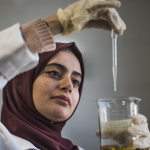The SHARE initiative (launched by the European Commission in 2018) main goal is to raise awareness of the role of sport and physical activity in the context of regional and local development. This initiative ensures that this is properly considered in policy and investment decisions at the European, national, and regional levels.
Different experts and policymakers gathered to discuss “active development” in a webinar on the 11th of May 2022.
The importance of sports in society keeps gaining importance and not only at a personal level. It has taken an active role in the economy (especially the experience economy) and in social & conventional media (where they provide massive media content).
But why is it important to encourage the population to do sports?
Sport and physical activity are critical for reducing non-communicable diseases. COVID has also shown us it is critical to reduce the impact of communicable diseases and to improve resilience and mental health.
It is time to address these issues systematically
Sports organizations are key to addressing these problems and they must realize their full economic and social potential. “Cohesion funds“ have been and are essential to developing the industry, but the thematic concentration has reduced funding for the sector.
It is necessary to have more of a concerted approach to access the cohesion funds. We must improve the coherence of sport-based interventions by moving from issolated projects to linked and progressive strategies
Sports contributions to society are truly essential
- Sport-based actions are good at delivering on “Cohesion objectives”
- Engages wide sections of society
- They help build social and business skills
- Labor-intensive and creates interesting jobs
- Beneficial for different areas such as education, science/innovation and environmental issues
- They are good to motivate people
During the SHARE initiative discussion on active development, there were many interesting points of view and different conclusions.
Sports and different organizations have been able to manage an economic return but they can still find ways to make it more sustainable. It is key to obtain the ability to connect with managing authorities in the same way as understanding who are the stakeholders. Finding partners with the same mindset and realizing this is a long process is essential (step by step).
Some people genuinely need support engaging with sport, and we need to improve infrastructure and address their possible setbacks.
Rather healthcare than care for health
Authorities must address health issues from their root. There is proof that it is cheaper to enhance sport than to spend on healthcare. We must be ready to communicate this to them and propose a set of actions.


